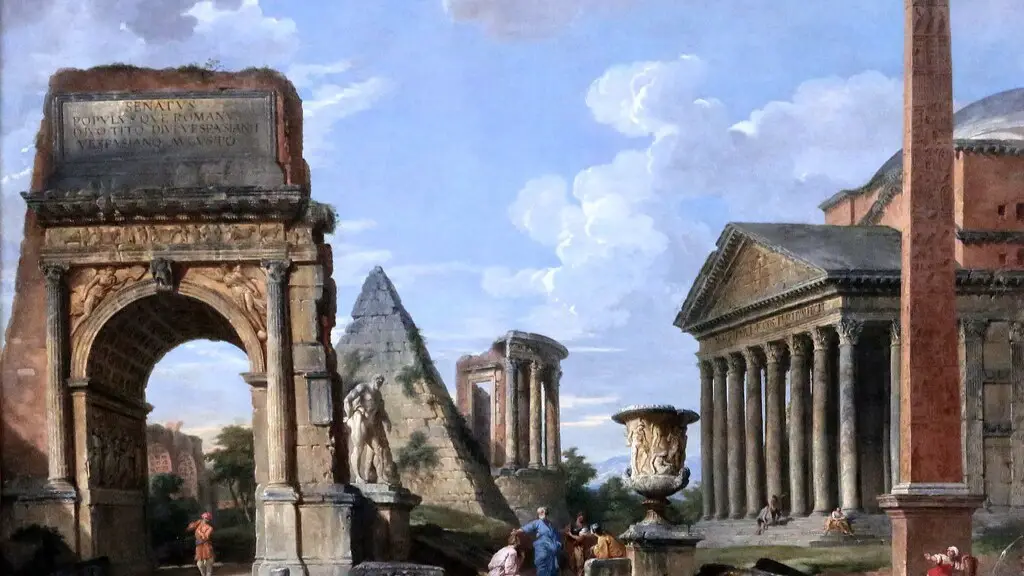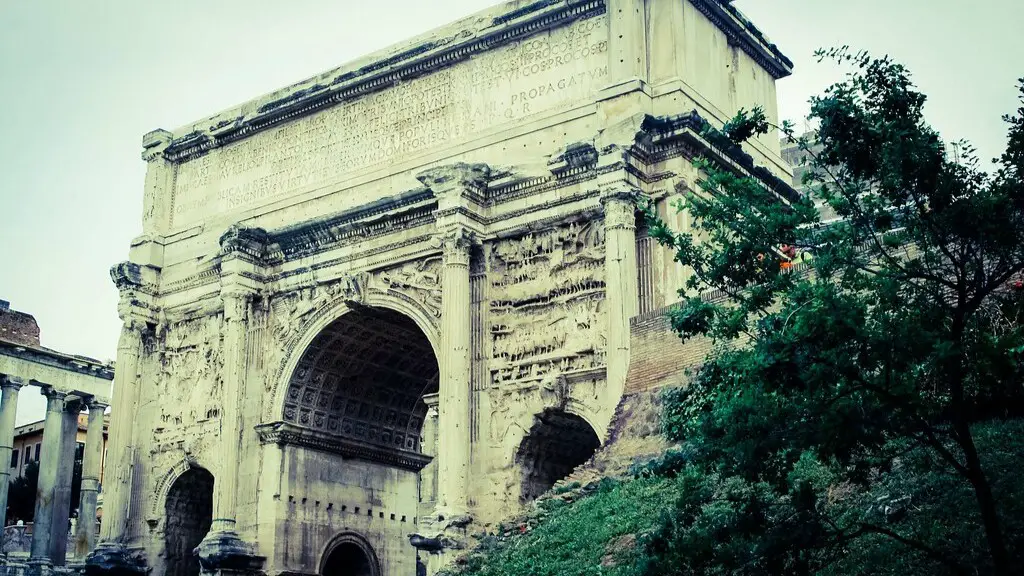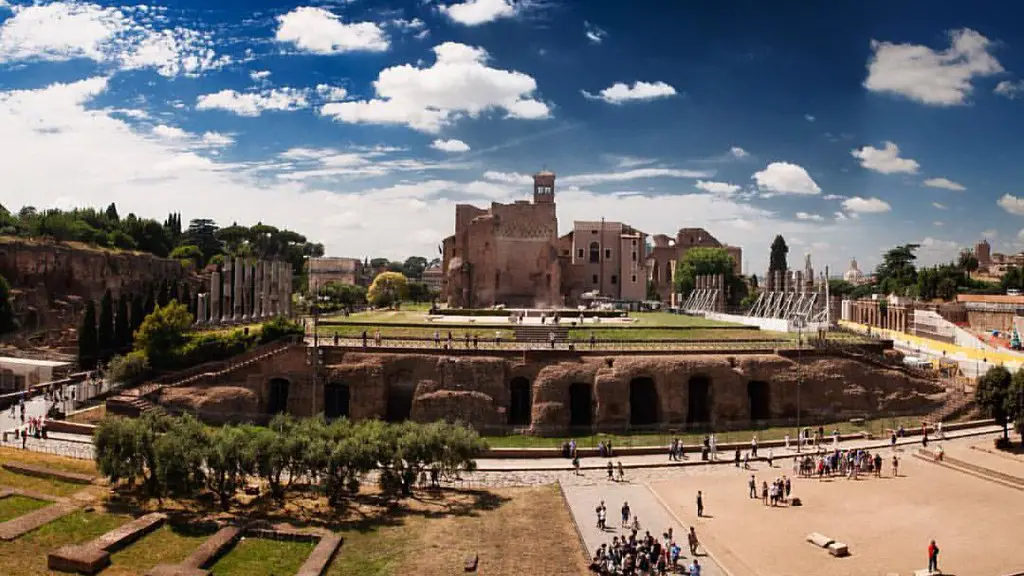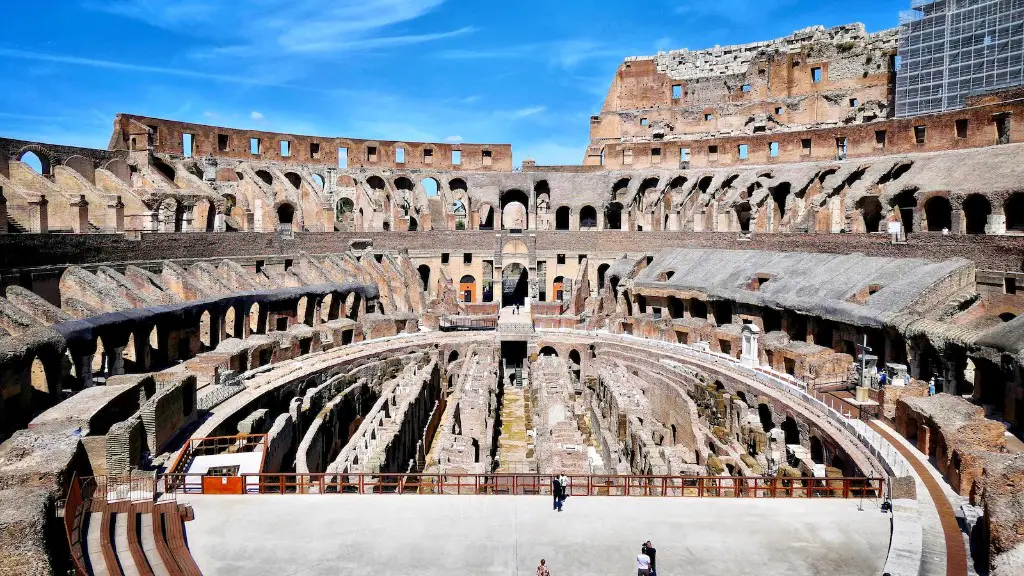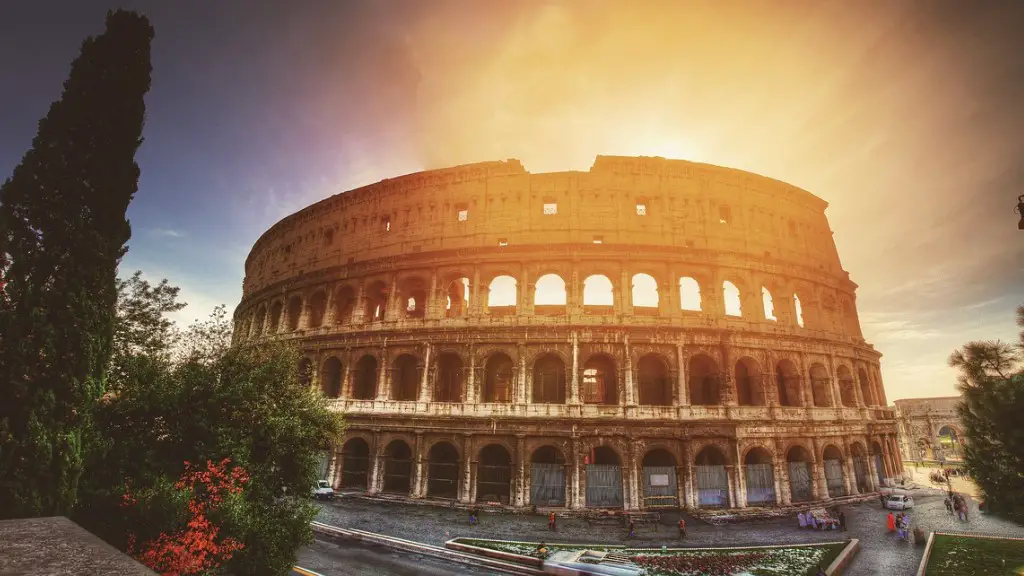The office of the tribune was an important one in ancient Rome. It was held by men of plebeian status – those outside the upper classes – and these men represented the lower class of Roman citizens and served as their advocates. It was their job to stand up for the rights of ordinary people and serve as a counterbalance to the power of the patrician classes.
The first tribunes were elected in 494 BC and the title carried considerable power, allowing the plebeians to block the actions of the Senate, veto decisions passed by the Assembly, and even directly intervene in legal cases concerning the plebeians. They also had the power to grant amnesties throughout their term.
The tribune’s office was not just an important one in terms of representing the plebeians’ interests, but it also was a foundation upon which other essential political institutions were built. The early Roman Republic, for instance, was formed by an alliance of two social classes and two legislative bodies, the Tribune Assembly and the Centuriate Assembly.
The Tribune Assembly consisted of the patrician and plebeian classes. The patrician class was made up of the most powerful, wealthy families in Rome while the plebeians were composed of small landowners and the lower classes, forming the majority of the citizens. The tribunes had the power to represent the interests of the plebeian class and could even convene meetings of the Assembly in extraordinary circumstances.
The Tribune’s role was not just about representing the plebeian classes but also about upholding the laws of the Republic. The tribunes had several legislative powers and the authority to intervene in legal cases. They could intervene in the trials of those accused of crimes and grant amnesties, a duty that had to be observed even by the powerful patrician class.
The tribune’s office also served as a platform to introduce new laws and measures that benefited the plebeian classes. These tribunes played a crucial role in the passage of reforms such as the establishment of the Twelve Tables in 449 BC, which were a set of laws that helped to strengthen the Roman Republic, protect the rights of the plebeian classes, and create a more equitable legal system that was based on clearly stated and written laws.
The tribune’s role was not limited to the capital city of Rome. They were also active in the Roman provinces, where they were granted the power to remove governors if they had committed wrongdoings. They could even call for the assembly to be convened in the provinces in extraordinary circumstances.
Throughout its history, the office of the tribune played an important role in shaping Rome’s political and social landscape. It helped to limit the power of the patrician classes, protect the rights of the plebeian classes, and introduce important laws and reforms such as the Twelve Tables that opened the door for a more equitable political system in Rome.
Innovations for Social Change
The tribune was also at the forefront of an array of social initiatives which helped to improve the lives of the lower classes in Rome. During the late Republic, they helped to pass a number of reforms that provided more security for the plebeian class. This included measures such as the grain law of 123 BC, which allowed the plebeians to purchase grain at a discounted rate, and the Lex Hordeoniana, which guaranteed debt relief for the plebeians.
The role of the tribune also extended to the political arena in Rome. The tribunes were instrumental in the passage of what is known as the Lex Hortensia in 287 BC. This law allowed the plebeian class to pass legislation without having to obtain approval from the Senate first. It was a major milestone in the history of Rome and it ensured that the plebeian class was given an equal say in the law-making process.
The tribune was also responsible for introducing a range of measures that improved the lives of the poor in Rome. They had the power to intervene on behalf of debtors and accused criminals, order the distribution of lands, and even pass legislation that provided welfare services to the citizens. All of these initiatives helped to create a fairer society in Rome and improved the lives of its citizens.
The tribune’s office was an important one in the Roman Republic. It served as the catalysts for reforms that protected the rights of the plebeian class, improved the lives of the poor, and provided a platform for the citizens of Rome to have a say in the process of law-making. When all is said and done, it is clear that the tribunes played an essential role in the history of ancient Rome.
Domestic and International Reach
The tribune’s office was not limited to domestic matters. It also had an impact on Rome’s foreign policy and called upon the plebeian class to come together and use their power to promote Rome’s interests abroad. The tribunes had the power to introduce new laws and measures that increased Rome’s influence and power in the Mediterranean region.
One example was the Lex Servilia passed in 141 BC, which allowed Rome to intervene in Greek and other Mediterranean affairs, essentially extending its influence throughout the region. The tribunes also took part in the war effort in foreign lands, issuing orders and raising the funds necessary for military engagements.
Under the leadership of the tribunes, Rome also established diplomatic ties with its neighbors in the Mediterranean region and sought to create economic ties with these states that could benefit both parties. The tribune’s office was instrumental in the signing of treaties and agreements that strengthened Rome’s position in the region.
The tribune was also influential in Rome’s relations with other states outside the Mediterranean region. As Rome’s power and influence expanded, the tribunes were responsible for negotiating treaties with these foreign states that allowed Rome to establish its authority in these regions and extend its influence. This served as a means of protecting Rome’s interests beyond its own borders and establishing it as a major superpower in the ancient world.
Reform and Revolution
The tribunes also had an important role to play in shaping Rome during times of political upheaval and civil unrest. During the era of the Gracchi brothers, the tribunes used their power to propose reforms that aimed to redistribute land to the plebeian class and increase their access to political power. This helped to quell the violence and unrest that threatened to tear Rome apart.
The tribune’s office also provided a platform for reformers and revolutionaries to push for more drastic reforms. During the time of Sulla, for example, the tribunes worked to introduce new laws that allowed for the transfer of power from the patrician class to the plebeian class and helped to create a more equitable society in Rome.
Lastly, the tribunes played a crucial role in the fall of the Republic and the rise of the Empire. They used their power to prevent the Senate from taking unfair and oppressive measures and to intervene in legal cases to protect the rights of the citizens. This helped to strengthen Rome’s political stability and pave the way for the eventual rise of the Roman Empire.
Legacy
The office of the tribune was an enduring one and it helped to shape Rome during some of its most important years. Although the office emerged as a tool to represent the interests of the plebeian class and give them a greater say in the political process, it soon evolved into a platform from which reformers and revolutionaries could push for bigger and more drastic reforms.
The tribunes also played an important role in Rome’s foreign policy, serving as a diplomatic force between Rome and its neighbors and allowing Rome to extend its influence to far-flung regions. Lastly, the tribunes helped to prevent oppressive measures and helped to create a more equitable society in Rome, paving the way for the eventual rise of the Roman Empire.
All in all, it is clear that the tribune’s office had an important role to play in the history of ancient Rome. From representing the interests of the plebeian class to helping to shape Rome’s foreign policy, the tribunes played an invaluable role in the life of the ancient Roman Republic.
Political Necessity
The office of the tribune was a necessary one and crucial for the survival of the Roman Republic. The patrician classes had the power and wealth and could use it to oppress the plebeian classes and get what they wanted. The tribunes provided a mechanism to ensure that the power of the plebeian class was not abused and that their rights were protected.
The tribune’s office also provided a voice for the plebeian classes in politics and allowed them to take part in the law-making process. This was necessary for the continued existence of the Republic and helped to create a more equitable political system that was based on consensus and dialogue rather than oppression and fear.
The tribune was also important in protecting the interests of the citizens. They had the power to intervene in legal cases and overturn decisions passed by the Senate if necessary. This ensured that justice was served and that the rights of the citizens were protected.
Lastly, the tribune’s office was also important for promoting social reforms in Rome. The tribunes had the power to pass laws that improved the lives of the citizens, granted debt relief to the plebeian classes, and provided welfare services to the needy. All of these initiatives helped to create a fairer and more equitable society in Rome.
The Enduring Legacy of the Tribune’s Office
The office of the tribune was an important one in the history of Ancient Rome. From representing the interests of the plebeian classes to helping to create a fairer society in Rome, the tribunes played an instrumental role in the life of the Republic. They helped to promote reforms that strengthened Rome’s position in the Mediterranean region, allowed Rome to extend its influence beyond its borders, and provided a platform for reformers to push for bigger and more drastic reforms.
The legacy of the tribune’s office lives on today. It was a crucial part of Roman history and it helped to maintain the stability of the Republic and paved the way for the rise of the Roman Empire. The tribune’s actions were not just important for Rome, but for all of humanity, as it taught us the importance of respecting the rights of the citizens and striving for a more equitable society.
